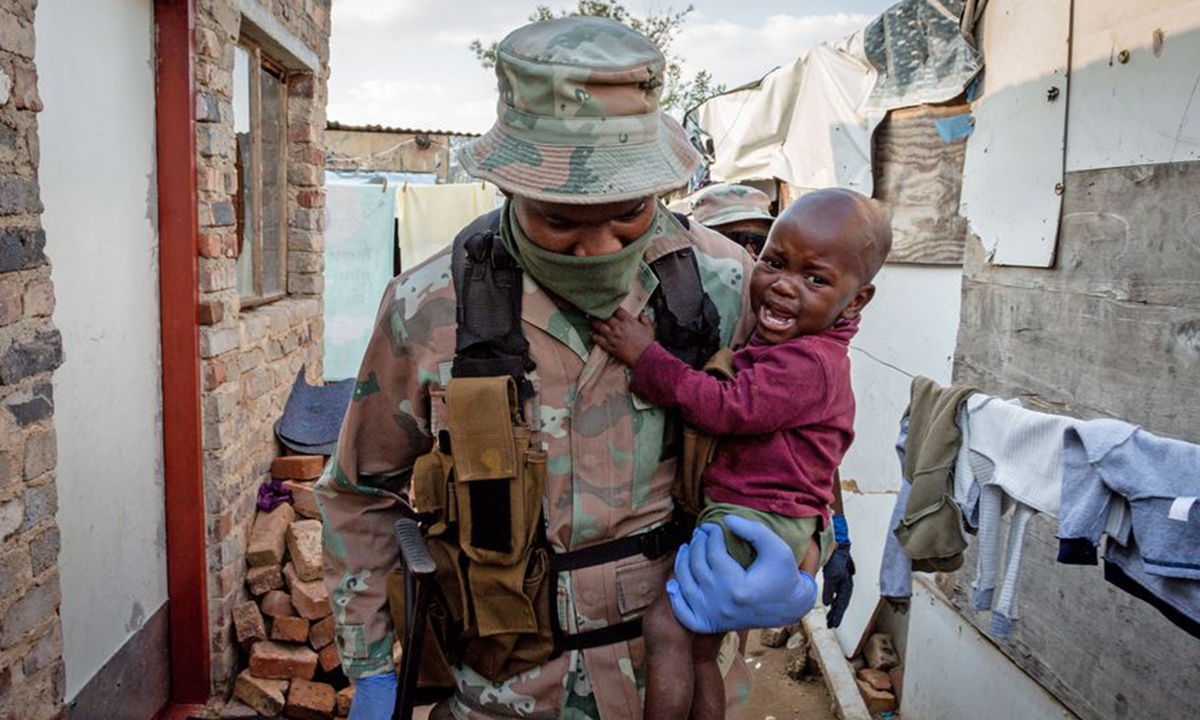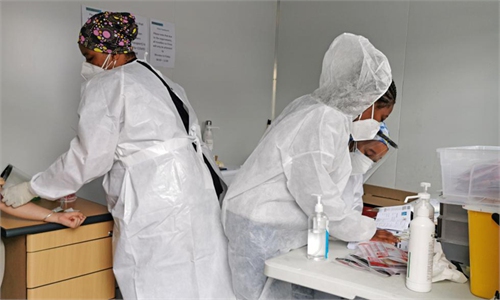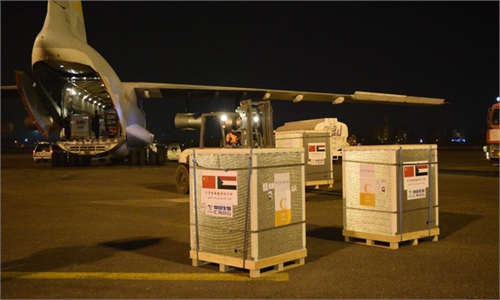COMMENTS / EXPERT ASSESSMENT
Innovative financial support for development is crucial for Africa's recovery during the post-COVID era

A soldier of South African National Defense Force carries a baby in his arm in Johannesburg, South Africa, April 20, 2020. Photo: Xinhua
During the recent Summit on Financing African Economies, African countries called for enhanced financing support from international community to help the continent overcome the COVID-19 pandemic fallout as soon as possible.
Though many countries and regions have seen a speedy recovery with mass vaccinations on the way, it seems that the pandemic will not reach a conclusion in the short term and many African countries, especially those that are vulnerable, still need to make great efforts to control the outbreak.
The IMF recently pointed out that the virus is further widening the gap between developed and developing economies, given its particularly hard impact on countries with simple economic structures that heavily rely on tourism or commodity exports.
The development of African countries is facing tough challenges starting with the grim situation of epidemic control in the continent. With southern Africa entering winter, some places are facing a risk of outbreaks in addition to new virus variants that bring more pressure. Moreover, many African countries are still facing challenges with insufficient medical systems and the lack of test and quarantine measures, not to mention the slow inoculation progress in the continent.
With a population of 1 billion, the continent only accounts for 2 percent of the world's total number of vaccinations. With recent turn of events, India may not be able to fulfill its promises of vaccine aid to Africa due to the ferocious rebound of infections, and vaccine hoarding and nationalistic practices from certain countries have also hindered accessibility to vaccines for the African people. Though China has been offering vaccines to over 30 African countries, it takes efforts from more countries to help the continent to overcome the health crisis.
In addition, local conflicts are further aggravating the development challenges of African countries. Peace and stability are the cornerstones of further development. However, continuous armed conflicts within African countries have not only caused huge casualties and property losses but also seriously hindered the containment of COVID-19 and the development of their economies.
Western countries have also shown dwindling willingness to offer aid to African countries. Many Western developed countries have seen gloomy economic growth, surging unemployment rates and intensifying social conflicts under the pandemic. With politicians focusing on domestic problems, the ability of these countries to provide support to developing countries has declined sharply.
Under such circumstances, aid from China has raised higher expectations. However, for China, a rapid increase in aid alone cannot meet the economic needs of African countries. It is also not a feasible path for China.
Therefore, in order to effectively promote the post-pandemic reconstruction of African countries, the guiding role of financial cooperation needs to be given a full play and the connection between development strategies from African countries with the Belt and Road Initiative needs to be accelerated.
In terms of financing for development, while offering policy guidance to break the bottleneck of investment in Africa, China should also step up efforts to enhance risk assessment to promote the steady and long-term development of financial cooperation between China and Africa.
First, high-level policy guidance should be strengthened when it comes to financial cooperation. Multilateral mechanisms, such as the Forum on China-Africa Cooperation (FOCAC), can be used to strengthen policy communication and to level up the institutionalization of bilateral political dialogues.
Second, financial cooperation should follow the market rules and give full play to the decisive role of the market in resource allocation as well as the principal role of enterprises.
Third, it should be paid attention to shore up risk control of cooperative financing projects to promote collaboration steadily and prudently on the premise of preventing systemic risks. From the perspective of enterprises, as market entities, financial institutions and enterprises should comply with market rules and control risks while promoting innovation. From the perspective of the governments, it is needed to improve financial supervision, strengthen the construction and service of foreign investment advisory institutions, and promote the cooperation between governments, enterprises and professional institutions to prevent risks based on comparative advantages.
The author is an associate research fellow at the Chinese Academy of International Trade and Economic Cooperation. bizopinion@globaltimes.com.cn



